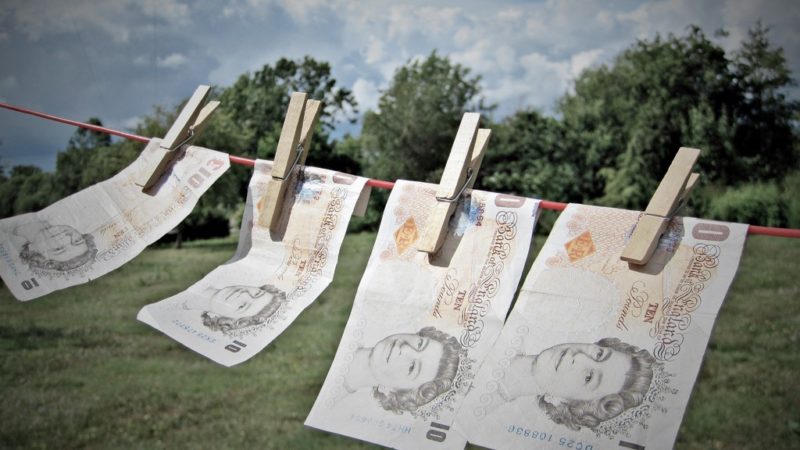'The UK government’s obsession with light-touch regulation could cost taxpayers £27bn, which is more than the annual public expenditure on social care.'

Prem Sikka is an Emeritus Professor of Accounting at the University of Essex and the University of Sheffield, a Labour member of the House of Lords, and Contributing Editor at Left Foot Forward.
The government-backed loans during the Covid crisis have been a lifeline for many businesses. Around £80bn has been given to some 1.67 million businesses through main retail banks, including Barclays, HSBC, NatWest, Lloyds and others.
The loans have also been a boon for fraudsters as the basic fraud prevention and due diligence checks were not applied. Early estimates are that some £27bn of loans have been fraudulently secured and will probably not be repaid. The crooks have collected the loot, dissolved companies and moved on to sunnier climates. Could law enforcement agencies catch them?
The government’s response is the Rating (Coronavirus) and Directors Disqualification (Dissolved Companies) Bill, currently going through parliament. The Bill permits the Secretary of State, the Department, or the official receiver, to investigate the conduct of former directors of dissolved companies, without it being necessary to first restore the company to the register held at Companies House.
The Bill is unlikely to fully achieve its objectives as the UK legal framework governing company formation is fundamentally flawed. Anyone from anywhere in the world can form a limited liability company in the UK. Companies House does not have statutory powers to verify the authenticity of company directors, secretaries and registered office addresses
Private companies only need one director who must be a natural person and a government website states that “Directors do not have to live in the UK”.
Public companies need at least two directors, but only one of these needs to be a natural person. The other can be a shell company located in an opaque tax haven where nothing is publicly known about the directors of companies.
UK company law permits nominee shareholdings and shadow directors i.e. it enables the real controllers and beneficiaries to conceal their identity behind hired advisers. The government won’t outlaw this practice.
The flawed arrangements attract crooks. A classic example is that of Magnolia Fundaction UK Ltd, a company linked with an Italian gangster who filed personal information in Italian language. An English translation showed that the director gave his name was “The Chicken Thief”; occupation was give as “Fraudster”, resident at the “Street of the 40 Thieves” in the town of Ali Babba in Italy. It was brought to attention by Italian investigators rather than by any checks by Companies House, which for years accepted documents with false information. When asked to act, the Business Secretary told parliament that “No action has been taken at this time against the promoters and officers of Magnolia Fundaction UK Ltd for filing inappropriate information in Italian at Companies House”.
Through simple checks, I also found that the same individual and his associates formed Business Bank Italy Limited in the UK. Its shareholders and directors were mostly from Italy, Hungary, San Marino and Spain. Its website offered venture capital, wealth management and prepaid MasterCard services to the general public.
UK registered companies have some 6.8 million directors and the government has no idea how many names and addresses of directors are false. Therefore, who will it be chasing and how? Thousands of UK companies have directors, natural and legal persons, whose addresses are in secretive offshore jurisdictions. Even if located, it is impossible for government agencies to call foreign nationals to account for malpractices in the UK.
The proposed law assumes that directors would notify creditors of their intention to dissolve the company and an interested party, such as a creditor would raise concerns with the Insolvency Service about frauds. This begs the question why would crooks follow the legal process. Besides, companies can be dissolved by failure to file accounts at Companies House. This way, all legal formalities of writing to creditors are bypassed.
The government also hopes that insolvency practitioners acting as administrators and liquidators would alert the Insolvency Service of fraudulent practices. This does not inspire much confidence either. There is plenty of evidence to show that the industry is corrupt. Most recent example of this is the debacle relating to Silentnight, a company pushed into insolvency by KPMG as it sought opportunities to enrol new predatory clients and increase its profits.
In June 2018 the All Party Parliament Group on Fair Business Banking published the Project Lord Turnbull Report. It documented a number of banking frauds which robbed innocent people of businesses, homes and savings. To date, no insolvency practitioner has come reported anything to the Insolvency Service.
Even if the Insolvency Service is alerted, it is hardly a speedy organisation. Carillion collapsed in January 2018 and despite a highly critical parliamentary report, no director, to date, has been disqualified.
The UK government’s obsession with light-touch regulation could cost taxpayers £27bn, which is more than the annual public expenditure on social care. Somewhat belatedly the government is trying to soothe public anxieties by enacting legislation to combat fraud, which has little chance of achieving its objectives. This is not accompanied by any reflections on the role of deregulatory ideologies that enable miscreants to form companies in the UK. The government had years to reform company formation, but despite numerous promises has failed to do so.
To reach hundreds of thousands of new readers we need to grow our donor base substantially.
That's why in 2024, we are seeking to generate 150 additional regular donors to support Left Foot Forward's work.
We still need another 117 people to donate to hit the target. You can help. Donate today.



